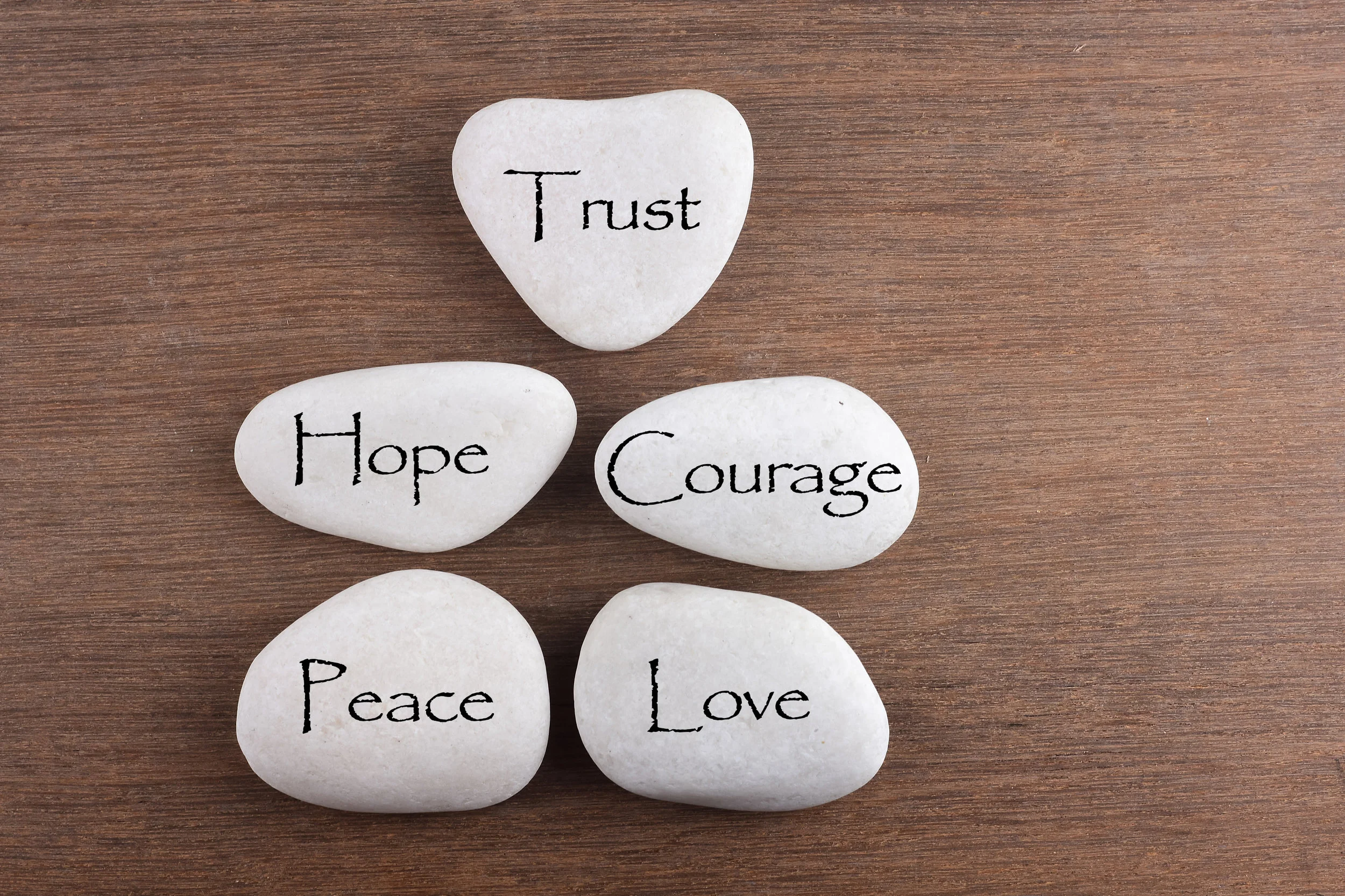Last week I spoke about goal setting and how using the acronym S.M.A.R.T can help you stay on track for 2017. During that blog I mentioned the importance of setting goals that are meaningful to you, something of value. I thought I’d spend some time clarifying what that means exactly by talking about the difference between core values and goals.
The concept that I’ll be using to help differentiate between core values and goals comes from Acceptance and Commitment Therapy (or ACT for short). ACT describes core values as having an internal compass of morals and values, which give us direction in life. Goals on the other hand are like the destinations we reach and the sights we see as we move along our path. From this comparison, you can probably determine that our core values are relatively stable, whereas our goals are ever changing. Let’s work through some examples of core values.
The types of core values people identify with will be different for everyone as they are unique. Some examples of core values include:
· Health and Wellbeing (e.g., physical, emotional/psychological)
· Self-Care
· Work
· Knowledge
· Spirituality
· Romantic Relationships
· Friendships
· Family Relationships including Parenting
· Community
· Environment
· Leisure
Have a think about which of these is important to you. You might only choose one or two, or you might feel as though they’re all important to you, whichever way you go, remember that these values are unique to you. After you have had some time to think about which of these core values are important to you, have a think about what kind of person you would like to be known as in each of these domains. Do you want to be known as a dependable and committed work colleague? Do you want to be known as an honest and loyal family member? Thinking about core values in this way can be difficult because it can generate a great deal of discomfort. Discomfort is felt if we feel as though our current situation in life is not representative of our core values, and we feel as though we are losing touch with who we are as a person.
One way of bridging the gap between core values and your current situation in life is by beginning to set goals that help you move closer to your core values. Say for example you have identified self-care as a core value but you feel as though you never have time to look after your self because life is hectic. You have since decided to do something about it by wanting to bridge the gap between your current life situation and your core value of self-care. In this scenario, the next step you could take is to set a S.M.A.R.T goal that helps you move closer to your chosen core value. An example of this might be to run your self a bubble bath every second Sunday evening. As you can see, this goal is specific, it’s meaningful because it is in line with your core value of self-care, it is realistic because you are not committing to it every week, and it’s time limited because you have set it to the evenings. Sticking to this goal could be tricky, but pencilling it in to your calendar and being flexible could help you stick to it.
As mentioned earlier, setting goals in line with core values can generate discomfort, but this is a good thing because it tells you that you are doing something that is important to you. Learning tools and techniques to help manage the discomfort along the way is something our clinicians can help with, and setting S.M.A.R.T goals to help you move closer to your valued direction in life is something you can read about on our wellbeing blog post from last week.
If you wish to further pursue exploring your core values and goal setting then any one of our clinicians would be able to help. Get in contact with us to arrange an appointment on (03) 9882-8874.
~ Dr Celin Gelgec and the team at Melbourne Wellbeing Group.

